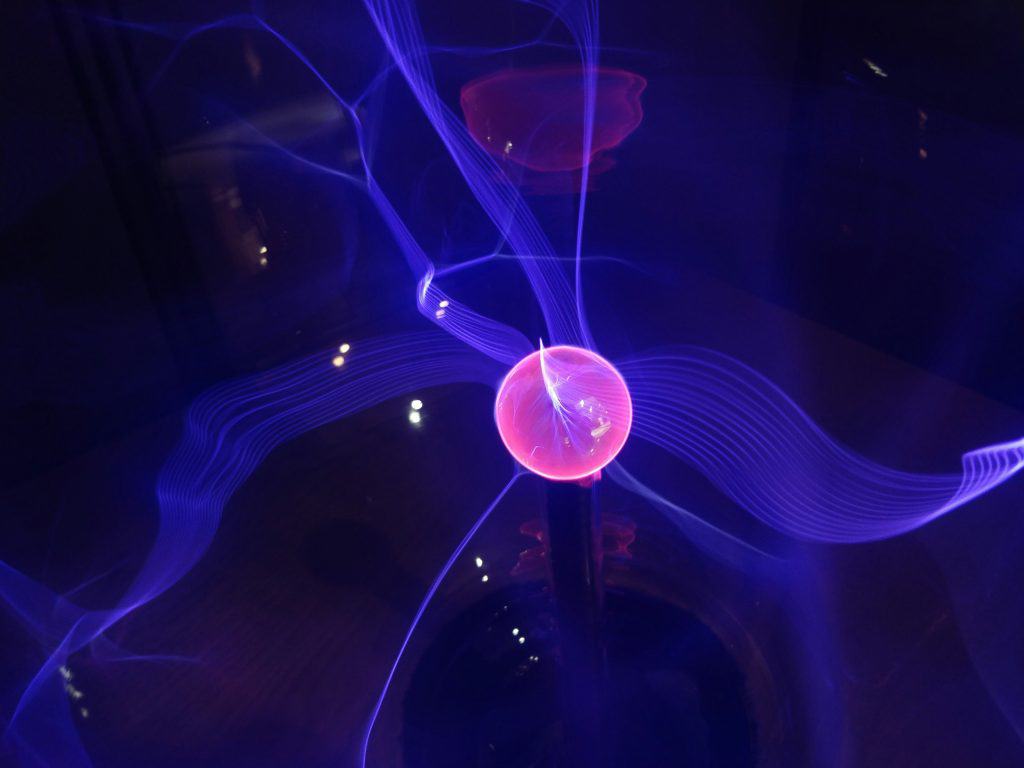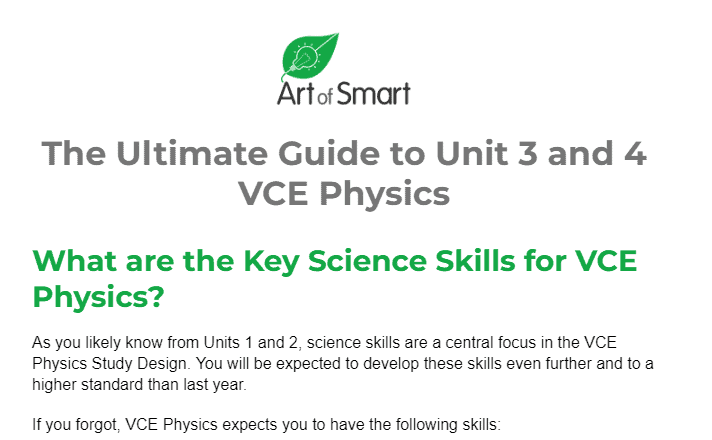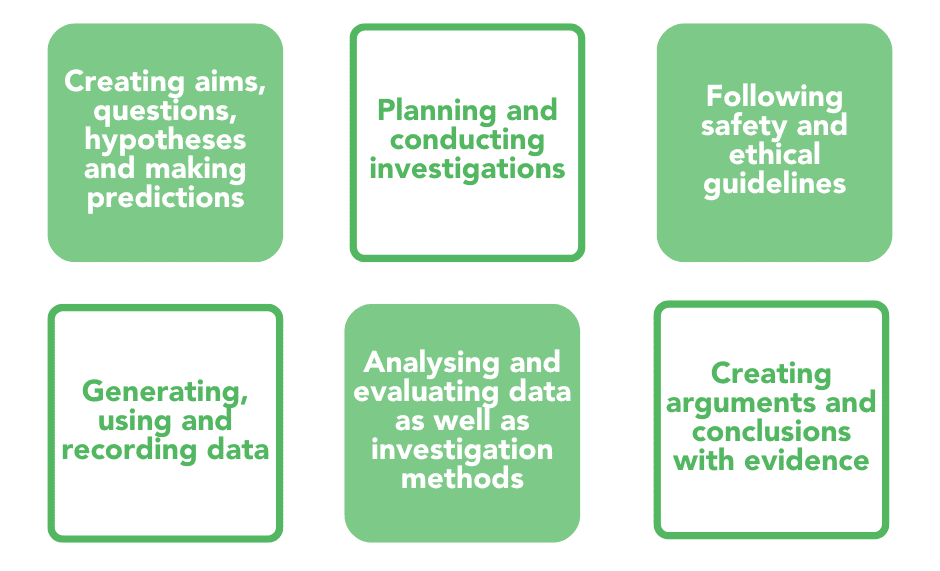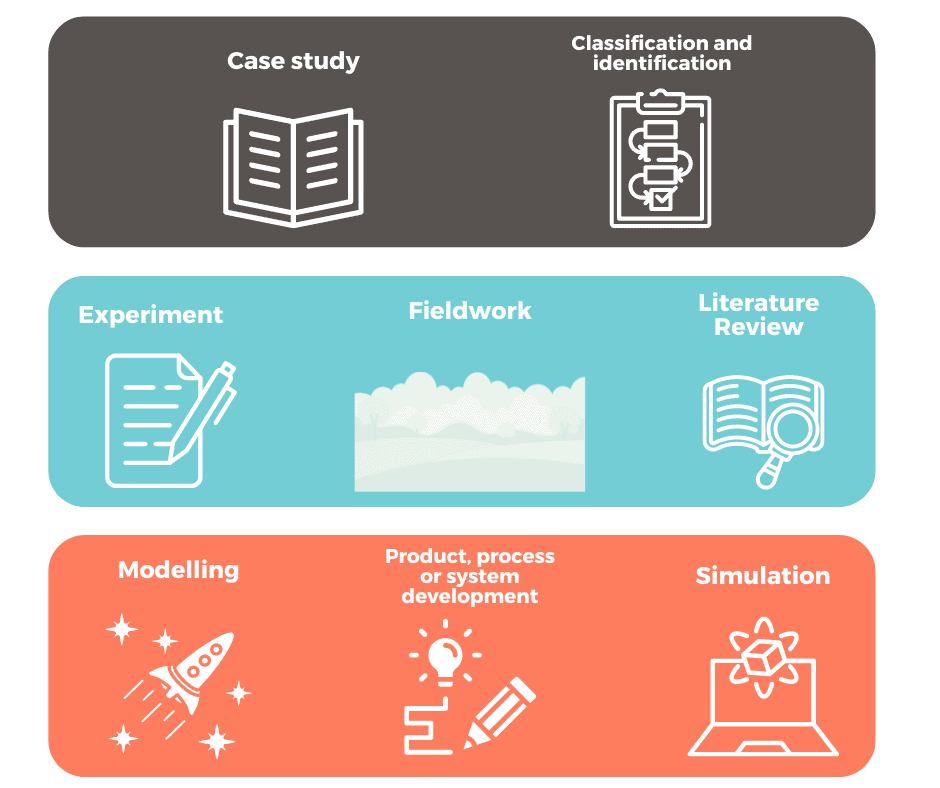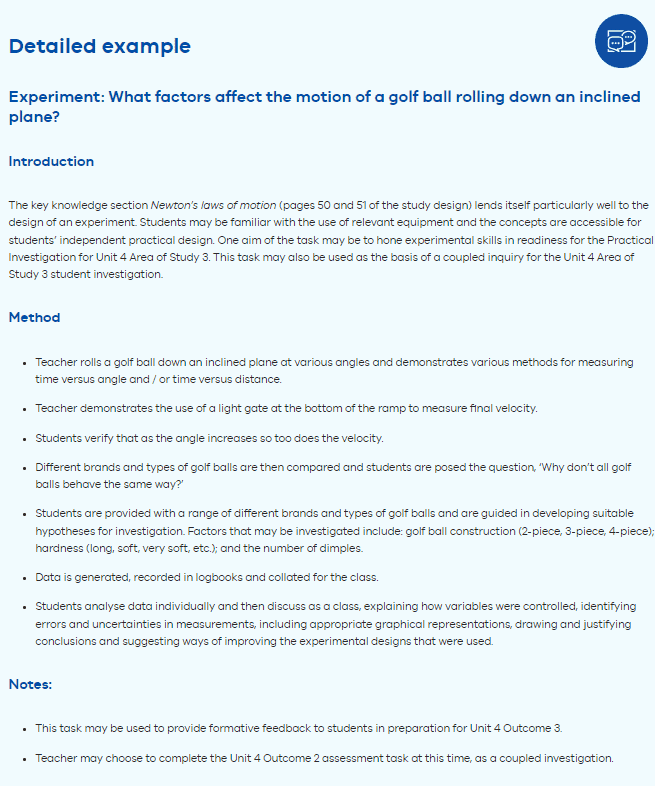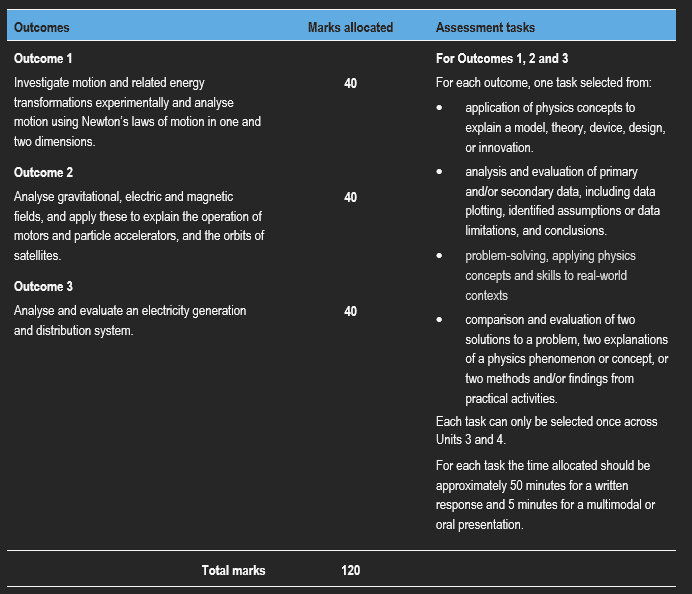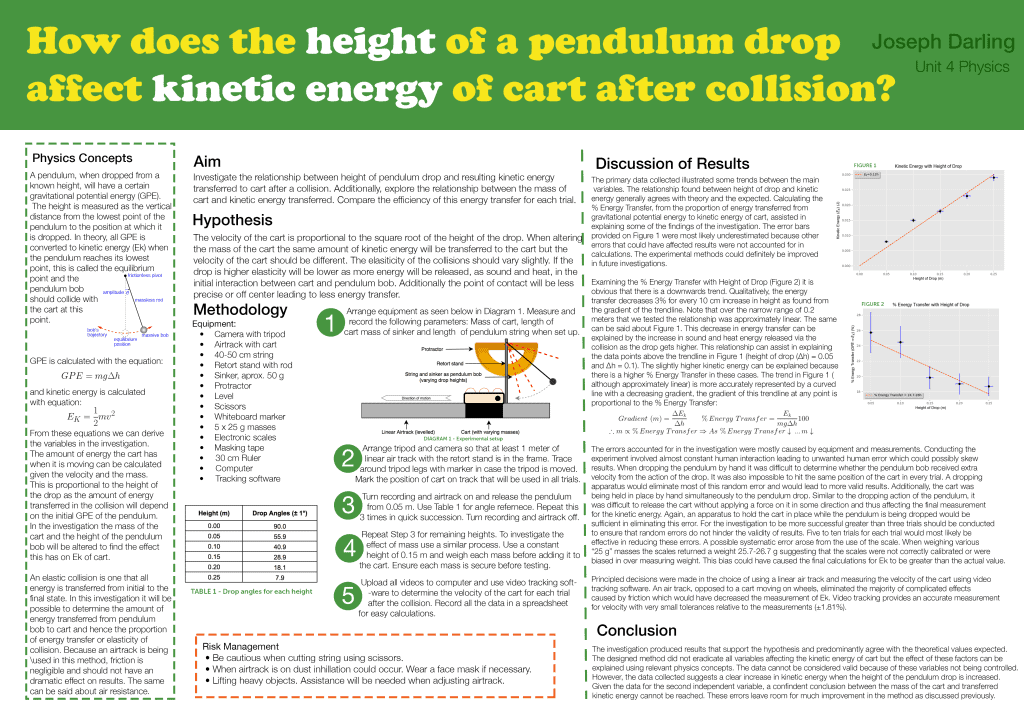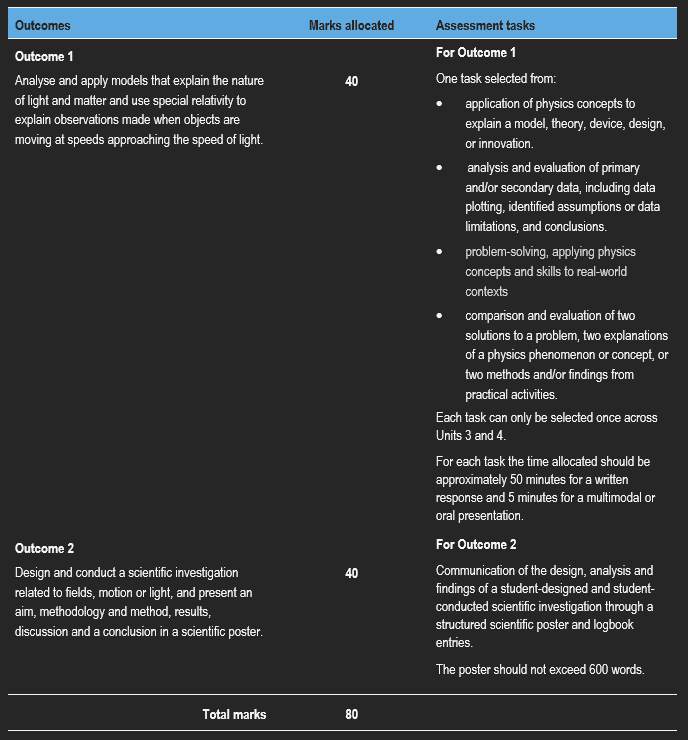VCE Physics Unit 3 and 4 can seem less daunting after tackling Units 1 and 2. Although, Units 3 and 4 can take students by surprise, especially because many tend to get complacent and underestimate the difficult of the subject.
However, achieving a good study score in VCE Physics is still simple.
Let’s go through the curriculum to see what you’ll need to do!
What are the Key Science Skills for VCE Physics Unit 3 and 4?
Unit 3: How do fields explain motion and electricity?
Unit 4: How have creative ideas and investigation revolutionised thinking in physics?
What are the Key Science Skills for VCE Physics?
As you likely know from Units 1 and 2, science skills are a central focus in the VCE Physics Study Design. You will be expected to develop these skills even further and to a higher standard than last year.
If you forgot, VCE Physics expects you to have the following skills:
Additionally, remember that there are 8 different scientific investigation methodologies that are you may need to use.
These apply to your SACs, and may be present in your exam, so make sure to be familiar with them and take them seriously!
#1: Case Study
You’ll delve into scenarios or topics, real and hypothetical, that mirror real-world complexities. Your exploration should encompass the intricacies one would face in reality.
Each case should have contextual recommendations, with the criteria for those recommendations shifting accordingly.
#2: Classification and identification
Classification involves organising complex situations or phenomena into a more manageable form.
Identification requires you to recognise occurrences as belonging to something.
#3: Experiment
The procedure of validating an established fact or hypothesis.
Involves typically examining the correlation between an independent variable and a dependent variable.
#4: Fieldwork
You’ll go to particular location to scrutinize a problem firsthand.
The data gathered from this site will form the basis of your investigation, potentially offering solutions or insights into the issue at hand.
#5: Literature review
Additional data from various sources including other researchers, their findings, and perspectives will be gathered to address topics.
Literature reviews serve to elucidate concepts and their functionalities. They also serve as groundwork for forthcoming investigations.
#6: Modelling
Modeling involves crafting a representation of an object, concept, or system.
This process necessitates the formulation of mathematical equations and the incorporation of variables to forecast outcomes, thereby facilitating the model’s refinement.
#7: Product, process or system development
As per the Study Design, this requires the creation of a solution, regarding a real world issue.
Utilization of technology alongside scientific know-how and methodologies will be essential in fulfilling this requirement.
#8: Simulation
Analyzing the dynamics of an actual or hypothetical system involves considering variables that cannot be controlled, mirroring real-world scenarios.
Can’t remember what all of the scientific methodologies are? Review our Ultimate Guide to Unit 1 and 2 VCE Physics!
Unit 3: How do fields explain motion and electricity?
Area of Study 1: How do physicists explain motion in two dimensions?
Content
Missed Newton’s laws of motion? Well you’ll be using it to analyse linear motion, circular motion and projectile motion!
You will also explore motion under other gravitational fields and strengths, while exploring force, energy and mass.
Assessment Example
Conveniently, VCAA have designed the VCE Physics curriculum so that Units 1 and 2 are very similar to Units 3 and 4. Therefore, the assessments will feel familiar and not different to what you’ve already done for a whole year!
Extracted from VCAA
Area of Study 2: How do things move without contact?
Content
Here you will use field models to explain object behaviour. The fields covered are electric, gravitational and magnetic. You will explore these through positions, potential energy and force.
This area of study overlaps with the previous one quite nicely, so it gives you an opportunity to refine your knowledge!
Need some additional study resources? Read our Complete VCE Physics Past Exams Master List!
Area of Study 3: How are fields used in electricity generation?
Content
You will use evidence and models of electric, magnetic and electromagnetic effects to explain how electricity is produced and delivered to homes.
Again, this is quite a practical topic that involves many real world scenarios such as transformers and electrical distribution systems.
Assessment Example
Literature review: Investigate an issue related to electricity transmission.
– Extracted from VCAA
Remember, a literature review gathering and analyzing secondary data concerning scientific findings or viewpoints from others.
This process aims to address inquiries or offer context to elucidate observed phenomena, or to prepare for an investigation aimed at generating primary data.
Disclaimer: VCE teachers have a lot of freedom in how they can assess you. The Scientific Investigation descriptions are quite open-ended, so make sure to fully understand what your teacher actually wants in each assessment.
Unit 3 Outcomes
Below is an summary from the VCE Physics Study Design of all the assessments you will have in Unit 3. You must be aware of how much of your mark each assessment accounts for, so please take note of it.
Furthermore, pay careful attention to the wording of each outcome and assessment task.
Extract from VCAA
Unit 4: How have creative ideas and investigation revolutionised thinking in physics?
Area of Study 1: How has understanding about the physical world changed?
Content
This involves learning about light, matter and motion. How these theories have developed and describing them.
You must be aware of similarities between the three and explain for instance, why electromagnetic waves exhibit both wave-like and particle-like properties.
If that’s not enough, you’ll also cover special relativity, enjoy!
Need help with VCE Physics content? Read our complete guide to using the VCE Physics Formula sheet!
Area of Study 2: How is scientific inquiry used to investigate fields, motion or light?
Image sourced from Juddy
Content
In this Unit you will undertake a self designed scientific investigation, which can be done in either Unit 3, Unit 4, or both!
The investigation must be about fields, motion or light.
The presentation for the investigation must be a scientific poster. A scientific poster offers an alternative format for presenting an experimental report.
It encompasses all the typical sections found in a report (such as aim, hypothesis, etc.), but presented in a poster format.
Here is a complete guide and example of how to make a scientific poster for VCE Physics!
Unit 4 Outcomes
Here’s a summary of the assessments you will be doing for Unit 4. Just note that you only have two outcomes, so you’ll need to make sure you make both of them count!
Extract from VCAA
All done!
That’s everything for VCE Physics Unit 3 and 4. Hopefully you see how Units 1 and 2 are just a dress rehearsal for Units 3 and 4. I’m also hoping that you feel more comfortable having gone through the content and realising – it’s not that bad!
Physics is all about practice. Do the study, do the questions, you’ll do great. There are no tricks in Physics… just right or wrong.
Need additional VCE Physics help? Try these articles!
- How to ace your VCE Physics exam!
- The Ultimate Guide to Creating a Scientific Poster for VCE Physics
- How to Ace Your End of Year Exam for VCE Physics
- The Definitive Guide to Effectively Using the VCE Physics Formula Sheet
- Everything You Need to Know from the VCE Physics Study Design
- Check out our list of all past VCE Papers
Are you looking for some extra help with VCE Physics?
We have an incredible team of VCE tutors and mentors!
We can help you master your VCE subject study designs and ace your upcoming VCE assessments with personalised lessons conducted one-on-one in your home or online!
We’ve supported over 8,000 students over the last 11 years, and on average our students score mark improvements of over 20%!
To find out more and get started with an inspirational VCE tutor and mentor, get in touch today or give us a ring on 1300 267 888!
Max Huyton is the VIC Growth Marketer for Art of Smart and a Laws and Commerce student at Monash University. In his other life, Max spends his time reading and writing whenever he gets the chance and cooking extremely mediocre dishes for friends and family.

